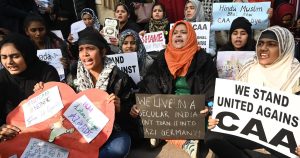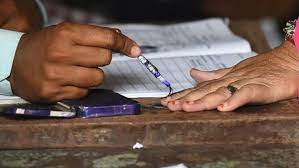
Ramadan: Drinks & Food to Stay Hydrated During Fasting
Ramadan Hydration Hero: Beat the Fast with These Delicious & Effective Tips
By: Saika J
Ramadan, a holy month observed by Muslims worldwide, brings a time of spiritual reflection, community, and of course, fasting. Abstaining from food and drink from dawn to dusk can be challenging, especially when it comes to staying hydrated. But with a little planning and knowledge, you can navigate Ramadan feeling energized and refreshed.
This article dives deep into the world of hydration during Ramadan, providing you with valuable information and delicious ideas to keep you feeling your best throughout the holy month.
Understanding Hydration Needs During Ramadan
Our bodies rely heavily on water to function optimally. It regulates body temperature, lubricates joints, transports nutrients, and flushes out toxins. When we don’t consume enough fluids, dehydration sets in, leading to headaches, fatigue, dizziness, constipation, and impaired cognitive function.
During Ramadan, these dehydration risks are amplified due to the extended period without fluids. So, focusing on optimal hydration during Suhoor (pre-dawn meal) and Iftar (evening meal) is crucial.
How Much Water Do You Need During Ramadan?
While individual needs vary based on factors like activity level and climate, a good general guideline is to aim for at least eight glasses of water during your eating windows. However, here are some additional tips to personalize your hydration plan:
- Listen to your body: Thirst is a sign of dehydration, so prioritize water intake if you feel dry or sluggish.
- Consider the climate: Hot and humid weather increases fluid loss through sweating, so adjust your water intake accordingly.
- Factor in physical activity: If you engage in exercise during non-fasting hours, add extra water to replenish lost fluids.
- Choose water-rich foods: Many fruits and vegetables have high water content, contributing to overall hydration.
Beyond Water: Other Hydrating Options During Ramadan
While water remains the golden standard for hydration, here are some additional options to add variety and replenish electrolytes:
- Electrolyte-Enhanced Water: Look for commercially available water with added electrolytes like sodium, potassium, and magnesium. These can be especially helpful during hot weather or high activity levels.
- Herbal Teas: Opt for caffeine-free herbal teas like mint, chamomile, or ginger. These offer a soothing and hydrating way to break your fast or enjoy a warm beverage during Suhoor.
- Low-Fat Milk and Yogurt: Dairy products offer a good source of hydration alongside protein and calcium. Opt for low-fat varieties to avoid excessive calorie intake.
- Freshly Squeezed Juices: While fruits naturally contain sugar, dilute fresh juices with water to prevent a blood sugar spike and maintain hydration benefits.
- Soups: Opt for clear soups or broths during Suhoor or Iftar. They offer a warm and comforting way to hydrate and provide some essential nutrients.
Foods to Prioritize for Hydration During Ramadan
Mother Nature provides a bounty of water-rich fruits and vegetables that can significantly contribute to your Ramadan hydration strategy. Here are some top choices:
Fruits:
- Watermelon: This quintessential summer fruit is over 90% water, making it a fantastic natural hydrator.
- Cantaloupe and Honeydew: Similar to watermelon, these melons boast high water content and a refreshing flavor.
- Berries: Strawberries, blueberries, and raspberries are all excellent sources of water, vitamins, and antioxidants.
- Citrus Fruits: Grapefruits, oranges, and tangerines offer a juicy and refreshing way to stay hydrated.
- Apples and Pears: These readily available fruits are high in water content and offer dietary fiber for sustained energy.
Vegetables:
- Cucumber: This cooling vegetable is about 96% water and provides essential electrolytes like potassium.
- Lettuce and Spinach: Leafy greens offer a significant amount of water alongside essential vitamins and minerals.
- Tomatoes: These versatile vegetables are over 90% water and add a delicious flavor to salads and meals.
- Celery: This crunchy vegetable offers a refreshing way to hydrate and provides some dietary fiber.
- Zucchini: With over 90% water content, zucchini adds a mild flavor and hydration boost to various dishes.
Foods to Limit During Ramadan
While most foods contribute some degree of hydration, some can actually have a dehydrating effect. Here are some items to limit during Ramadan, especially during Suhoor:
- Salty Foods: Salty foods can trigger thirst and lead to increased fluid loss. Opt for low-sodium options whenever possible.
- Spicy Foods: Similar to salty foods, spicy dishes can stimulate thirst and dehydrate you faster.
- Caffeinated Beverages: Caffeine is a natural diuretic, which means it increases urine production, leading to fluid loss. Limit coffee, tea, and colas, especially during Suhoor.
- Sugary Drinks and Processed Foods: Sugary drinks and processed foods often contain high levels of sodium and artificial ingredients, further promoting dehydration. Opt for whole foods and natural sweeteners whenever possible.
- Fried Foods: Fried foods are generally heavy and can take longer to digest, leading to discomfort and potentially hindering water absorption. Focus on lighter, steamed, or grilled options.
Suhoor and Iftar Meal Planning Tips for Hydration
Strategic meal planning plays a crucial role in staying hydrated throughout Ramadan. Here are some tips for both Suhoor and Iftar meals:
Suhoor (Pre-Dawn Meal):
- Focus on Complex Carbohydrates: Opt for whole-grain options like brown rice, quinoa, or oatmeal. These provide sustained energy and help regulate water absorption.
- Include Protein Sources: Lean protein sources like fish, chicken, eggs, or beans keep you feeling full and provide essential nutrients.
- Prioritize Water-Rich Fruits and Vegetables: Load up on fruits and vegetables with high water content like watermelon, cucumber, berries, and leafy greens.
- Hydrating Drinks: Include water, milk, or diluted fresh juices alongside your meal to ensure adequate initial hydration.
Iftar (Evening Meal):
- Break the Fast with Dates: Dates are a traditional way to break the fast and provide a natural source of sugar and electrolytes.
- Soups and Salads: Begin with a warm soup or salad to rehydrate quickly and gently ease your digestive system back into action.
- Balanced Main Course: Include protein, complex carbohydrates, and healthy fats in your main course for sustained energy and satiety.
- Hydrating Drinks: Continue to consume water or hydrating beverages throughout the evening to replenish lost fluids.
Additional Tips for Staying Hydrated During Ramadan
- Plan Your Meals: Planning your Suhoor and Iftar meals in advance ensures you have access to healthy and hydrating options.
- Carry a Water Bottle: Keep a reusable water bottle with you throughout the day to encourage consistent water intake.
- Set Reminders: Set reminders on your phone or use a hydration app to stay on track with your water intake.
- Avoid Excessive Exercise: While staying active is important, avoid strenuous exercise during the fasting hours. Opt for moderate activity if needed.
- Listen to Your Body: Pay attention to your body’s thirst cues and adjust your hydration plan accordingly.
Maintaining Healthy Habits for Overall Well-being
While staying hydrated is crucial during Ramadan, remember to prioritize overall well-being. Here are some additional tips:
- Get Enough Sleep: Aim for 7-8 hours of sleep each night to promote optimal bodily functions and support hydration.
- Manage Stress: Chronic stress can disrupt your sleep and negatively impact hydration. Practice relaxation techniques like meditation or deep breathing.
- Avoid Smoking: Smoking can exacerbate dehydration and is detrimental to overall health. Consider quitting smoking for long-term benefits.
- Consult a Healthcare Professional: If you have any underlying health conditions or concerns, consult with a doctor or registered dietitian for personalized advice during Ramadan.
Bottom-line: By following these tips and creating a personalized hydration plan, you can navigate Ramadan feeling energized, refreshed, and spiritually fulfilled. Remember, Ramadan is a time for spiritual reflection, community, and self-care. By prioritizing your health and hydration, you can maximize your focus and devotion throughout the holy month.
Disclaimer: This article provides general information and is not intended as a substitute for professional medical advice. Always consult with a healthcare professional before making any changes to your diet or lifestyle, especially if you have any underlying health conditions.

